There are institutions and professionals who teach a Bio-Individual approach to nutrition. What does it mean and does it hold merit?
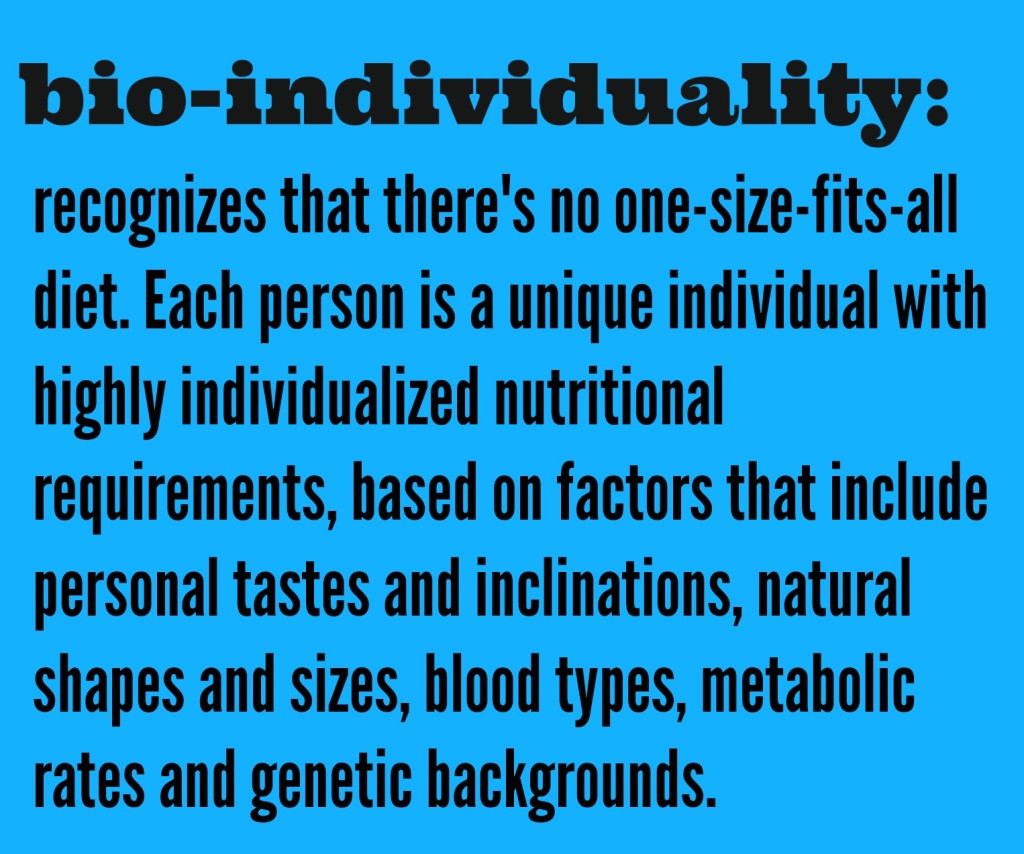
Bio-Individuality means “There’s no one-size-fits-all diet – each person is a unique individual with highly individualized nutritional requirements. Personal differences in anatomy, metabolism, body composition and cell structure all influence your overall health and the foods that make you feel your best. That’s why no single way of eating works for everyone. The food that is perfect for your unique body, age, and lifestyle may make another person gain weight and feel lethargic.
Men eat differently than women, children eat differently than adults, and we all have very different preferences. Our personal tastes and inclinations, natural shapes and sizes, blood types, metabolic rates and genetic backgrounds influence what foods will and won’t nourish us.” (source)
Sounds pretty good, huh? Let’s break it down.
1. Bio means “life” in Greek. Individuality means “the particular character, or aggregate of qualities, that distinguishes one person or thing from others; sole and personal nature.” (source)
Bio-Individuality lends itself to mean that each of us has “unique life.” Is this true? Of course it’s true. But it’s relative. As humans we are very different from one another if you compare two people. But if you compare a human to a Jamaica Rock Iguana, they are really different. In this light, those two humans seem pretty similar after all.
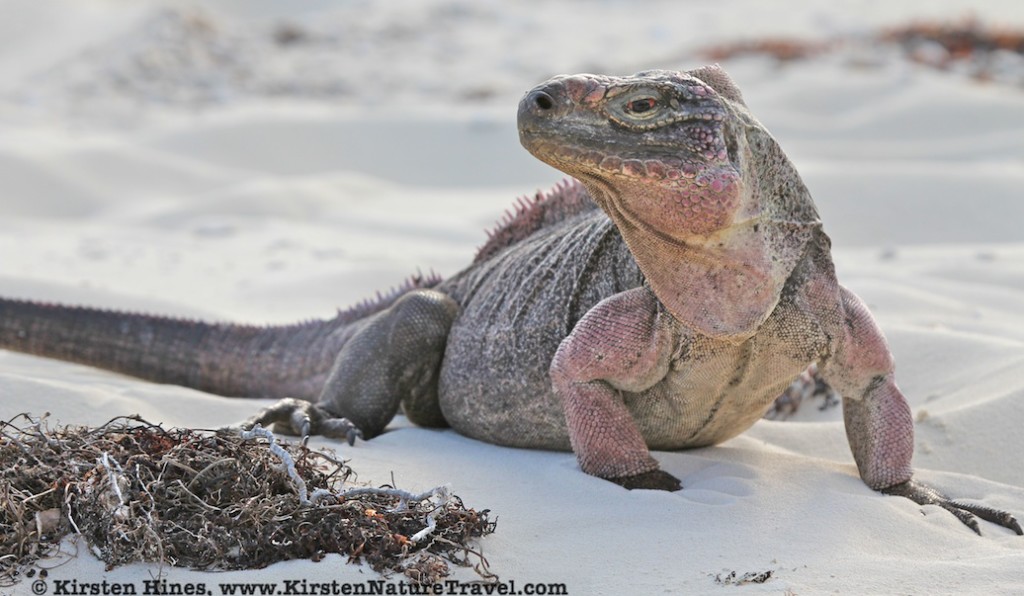
2. Is there a “one-size-fits-all” diet for humans? Yes. When born healthy, humans are anatomically very similar, warranting a natural diet [lifetime food, not a weight-loss plan] intended for human anatomy & physiology.
Elephants in India don’t need totally different food than elephants in Africa. Horses around the world don’t need inherently different foods than one another. Humans have common anatomy, though shapes and sizes may vary. “Animals who are anatomically and physiologically similar thrive on similar foods. Cows eat grass, leopards eat meat, and hummingbirds eat nectar,” writes Dr. Douglas Graham.
Starting with our head, we see with our eyes in full-color scale to spot red apples, orange tangerines, green leaves, and pink berries unlike predators who do not need full-color vision to spot movement and who have noses that detect the scent of prey in a way that we can not.
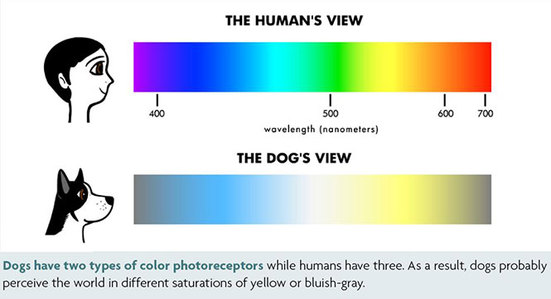
Our upper and lower jaws are stacked on top of each other. Click your molars now and you’ll feel that this is true. Jut your lower jaw forward, sticking out your chin, and you’ll feel that our molars are meant to grind food forwards and backwards. We can also move our chins side to side indicating that our jaws have lateral movement too. Predators do not have forward or lateral movement of the jaw because they clamp down on prey like a metal trap to hold and rip flesh. We are outfitted with chewing tools (teeth) that are designed to masticate or grind our nourishment.

Humans have teeth that are relatively blunt and flat. We may have some sharper teeth on the sides for breaking fruit skins, but nothing that would cut into the hide of prey. Predators with true canines have elongated, pointed side fangs that are used as clenching daggers.
We have naturally alkaline saliva chemistry in our mouths which produces carbohydrate digesting enzymes. Predators have naturally acidic saliva chemistry that produces no carbohydrate digesting enzymes. Predators secrete the enzyme uricase from their kidneys to break down digesting flesh. Humans do not create nor secrete any uricase.
Both the small and large intestines of humans are long in ratio to overall body length. Fiber from food is required to move food through this long channel. Predators have short intestines and have no need for fiber in their diet. It takes humans 12-18 hours to fully digest a meal while a predator needs only 2 to 4 hours to digest meals.

Dr. Garth Davis reports that only 3% of American humans are protein deficient from malnourishment, starvation, or anorexia. However 97% of Americans are fiber deficient. (source)
We have arms that are typically the length of half our height and we can raise them overhead while we stand up on our two legs and feet. We need not look for food only on the ground thanks to our height and reaching advantages. At the ends of these arms we have prehensile hands, not paws, with opposable thumbs that can grab and hold a hand-sized piece of immobile food. Our nails, even when grown, are not sharp enough for latching into prey.
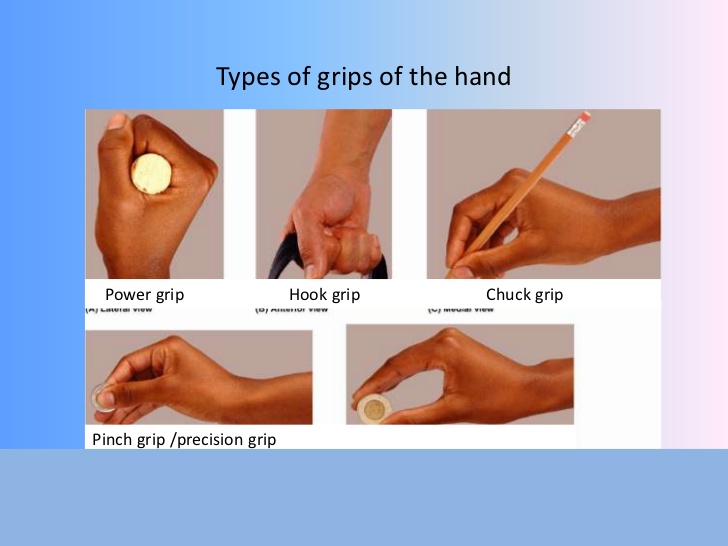
Foods that are full of color, packed with fiber, composed of carbohydrates, and that may grow on the ground or in bushes or trees are natural foods for humans based on our anatomy & physiology. Fruits, vegetables, roots, grains, legumes, nuts, and seeds meet these anatomical requirements, are relatively easy to secure, and nourish us completely. We need not look any further than our own bodies to identify how and what we are meant to eat.
On average, biochemically all humans are 99.5% similar to any other humans. (source) If you have met a human with drastically different anatomy than what I’ve presented here, aside from deformity, birth defect, or surgery, please let me know.
3. Personal tastes and preferences are strong. We are trained and we train ourselves by exposure (geographic location, the grocery stores near us, the restaurants we visit, the people with whom we eat and who cook for us) to prefer the foods we eat. But these preferences are not locked in. Taste buds change and can be retrained mindfully over time. Poor habits sometimes die hard. But let’s not mislead ourselves into thinking that personal tastes and preferences are great indicators of right nutrition.
4. When born into and living in a state of health, we are very similar to one another in our nutritional needs. It is only when the body is in a state of disease do we need personalized nutrition. But this doesn’t mean that some people will need to eat the uppermost leaves from the tallest trees, that some people will need to scour the bottom of river beds, and that others will need to pick away at rotting carcasses. Even in a state of disease, the realm of natural food choices are the same, just some specific foods need to be limited or omitted.
• Those who have blown out their thyroid gland need to avoid goitrogen-containing foods like cruciferous vegetables.
• People who have cancer or diabetes may want to omit or limit fast carbs like whole, raw sugar-dense fruits.
Click: Know Your Complex, Simple, and Refined Carbs
• Those who have heart disease may wish to omit whole plant fat intake.
Click: 6 Health-Preserving Reasons to Stop Consuming Oil
• A person who is allergic to nuts will definitely need to avoid nuts.
• Someone who has had their colon removed may need to limit and monitor their fiber intake.
It is only in a state of disease do individual & customized nutritional approaches become necessary. And it doesn’t mean that this individual needs to eat outside the realm of natural human foods, it just means that some need to be omitted. There may be natural supplements that people need to work out of their unique state of disease.
Do we need different caloric input based on our muscle mass (gender, athleticism, age) and activity level? Of course. But we don’t need to choose the calories from foods that do not support human anatomy.
What’s behind this Bio-Individuality approach?
In my opinion, Bio-Individuality is a euphemism for permissive omnivorism. It is a fancy term that permits people to believe that some people need to eat animal-based consumables (meat, dairy, eggs, honey) while other people may not.
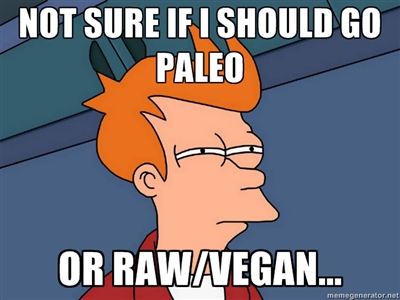
It is a safe way of not taking a stance for or against vegan, vegetarian, paleo, ayurvedic, macrobiotic, raw, low carb, high carb, low fat, high fat, high protein, fruitarian, blood-based diets, and other approaches to eating.
Bio-Individuality is a way to not offend anyone and a way to sell everyone.
Let me be clear, honest, and take a risk of offending: there is no nutrition in the flesh or fluids of animals that can not be gotten from where the animal got it – the sun and the earth.
Click: Nutrition Only in Animal-Based Foods
At one time was it more efficient to eat the nutrient stores in the flesh and fluids of an animal than it was to gather leaves and berries? Absolutely!
Today is it more efficient to go to the grocery store and pick up animal flesh and fluids rather than vegetables, fruits, nuts, seeds, grains, legumes, and tubers? No. You still have to go to the same store, push the same buggy, go through the same register, and haul your goods home.
Our individual nutritional needs and preferences are only one part of the equation. We are each an integral part of a vast global system. There is no point in being a healthy person on a sick planet. Food choices must take into account environmental concerns to be fully responsible choices.
What makes us different from one another doesn’t dictate what to eat.
Having blonde or brown hair, green or grey eyes, tall or short height, location-based speech accents, different personal experiences, body proportions, sexual orientation, family structures, personalities, habits, unique microbiomes, and other details do not indicate what foods to eat. We are all variations of the same basic human blueprint and when that blueprint is encoded with health, we can all thrive on whole plant-based foods.
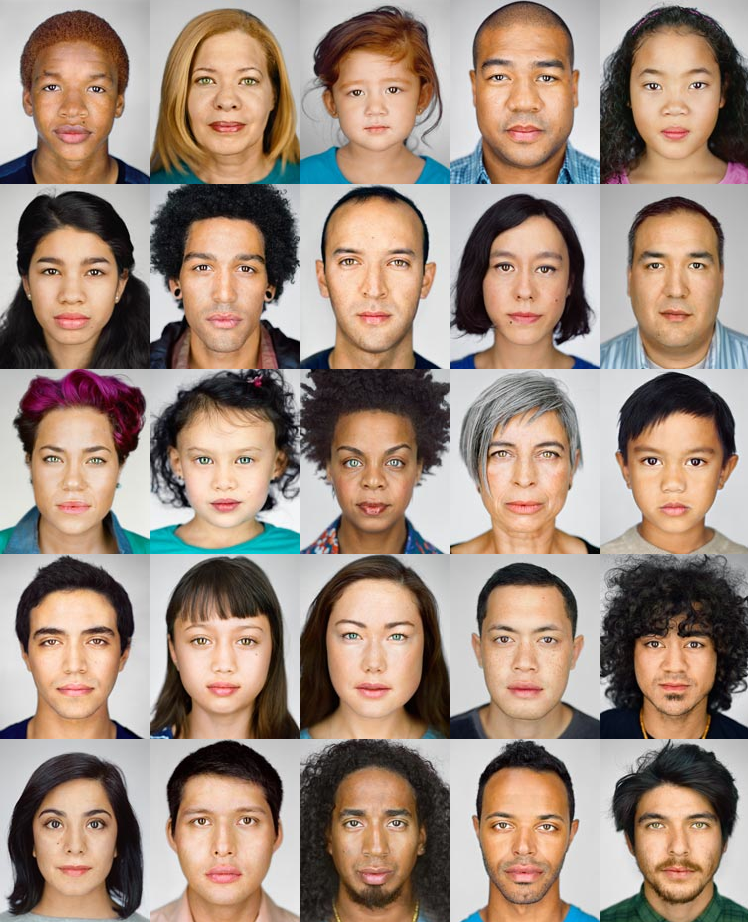
Joshua Rosenthal is responsible for coining and trademarking “Bio-Individuality” as a term. Below is the comment I left on his blog post where he supports people giving up their vegan and macrobiotic ways of eating.
“There is absolutely no nutrient in animal flesh and fluids that humans can’t get from where the animal got it: the sun and the earth. If you don’t want to eat dirt like animals do, you can take a B12 supplement.
Eating well for health includes making food choices that protect natural resources in order to preserve human life on earth. There is no point in being personally healthy on a sick planet.
The only diet that is good for humans, good for the planet, AND respectful of other living beings is a naturally low fat, whole food, plant-based diet. If there is another way that meets these three criteria, please let me know. Thx!” (source)
Additional Resources:

{ 23 comments… read them below or add one }
I’m not sure if you are arguing for or against individuality in diet, but my take is that within the restraints of the world’s current knowledge of nutrition and health there IS room for individuality. In addition to the factors mentioned I would add geographic location and economic situation. The room for differences is critical for long term sucess with a new diet. And the need for one on one coaching is most advantageous. That is why I cherish the “coach-player” relationship I have with you, Carla. I know that I would never have gone as far towards a healthy diet without your help. And my diet continues to evolve, small changes here and there. So, because I don’t say it often enough, THANK YOU CARLA FOR ALL YOUR SUPPORT.
My case against Bio-Individuality (as a term) is based on humans having essentially the same anatomy & physiology across the globe. If you will re-read the article you’ll see that factors like location, personality, habits, and access attribute to our personal diet, but our anatomy does not dictate that we must eat outside the plant kingdom. There are not people who must eat meat to survive (based on anatomy alone) and those who do not.
Thank you for your kind words Paul. I know you were very skeptical at the beginning of our journey together. I’m glad you kept an open mind and that our extended conversation has created this wonderful relationship.
You’re right, Carla, I was skeptical and cautious. I had forgotten this.
Hi Carla,
I agree with you re: plant diet versus a meat diet however, I do know that there is such a thing as bio-individuality. Example – DNA, within our DNA, the way our bodies metabolize nutrients is determined. Some people a genetically predispositioned to require more Vitamin D, or more Vitamin B12 and so on. Sometimes they require less as their bodies are able to metabolize a certain Vitamin very well. Additionally, some foods can trigger certain genes to turn on creating an illness. An example of this is Celiac Disease. Someone with these genomes, they may go most of their lives eating glutton with no issues until they are pregnant. When pregnant glutton can trigger celiac disease causing miscarriage(s). These are just a few examples of bio-individuality.
For your consideration,
Lin Weinberg
Hi Lin, Thank you for taking the time to read and comment. If someone were predispositioned to require more Vitamin D or more Vitamin B12 they still wouldn’t need to eat a radically different diet from others. They would need to eat perhaps more of certain plant foods. Vit D is best from the sun or perhaps can be consumed in mushrooms. Vit B12 comes from bacteria in the dirt so we can eat dirty veggies or take a supplement. There’s no need to eat meat, dairy, or eggs to get these vitamins. Animals have them in their bodies because they were either exposed to the sun, ate dirt when eating food off the ground, or their feed was supplemented with these vitamins. They get it the same way we can/do.
Yes, some people have sensitivities that would require them to eliminate certain foods. This still does not predicate a radically different diet. There are just some plants to avoid consuming.
“When born into and living in a state of health, we are very similar to one another in our nutritional needs. It is only when the body is in a state of disease do we need personalized nutrition. But this doesn’t mean that some people will need to eat the uppermost leaves from the tallest trees, that some people will need to scour the bottom of river beds, and that others will need to pick away at rotting carcasses. Even in a state of disease, the realm of natural food choices are the same, just some specific foods need to be limited or omitted.”
Unless someone were allergic to all plant foods or they were going to starve to death without animal foods because they didn’t have access to a decent source of plant foods, I can’t think of any reason to eat meat, diary, or eggs. All the nutrition we need can be gotten from the sun and plants and a B12 supplement (if we don’t like eating dirt). Eating animals and their secretions was once an efficient transfer of nutrients from the sun and earth into our bodies. However with our modern food distribution system, it is just as efficient to fetch plant foods from a grocery or market as it is animal foods. Now that we know that better health can be obtained by eating plants, and that plant-based eating creates a smaller carbon footprint, and is, of course, more compassionate toward the animals, it makes more sense to eat a well-planned nutritious plant-based diet as long as decent plant-foods can be obtained.
After reading your article and your reply above, especially the B12 part, I feel it important to point out that many observed vegan patients who suffer irreversible degeneration neurologically, from B12 deficiency (many of whom die) would have never faced such issues if they had simply consumed a small amount of animal products or got B12 shots/pills. Your perspective is very simple “We are all the same…” but biodiversity in human population exists, differences in DNA exist, epigenetic changes happen constantly based on exposure/conditions and if we try the “simple” one size fits all vegan diet we get some who do ok and most who are very skinny and weak…unless they use pharmaceuticals like steroids or B12 pills.
I personally tried veganism and did so with knowledge of nutrition and health. I lost from 220 lbs of athletic 10% body fat to 160 lbs of skinny 16% body fat (measured accurately by water scale). I was strong and powerful, athletic and virile before, 60+ lbs of muscle lost, weak with low stamina and no libido and sick with colds/flu every month after. I cannot agree with you from personal experience and my observation of vegans being permanently irreversably neurologically (Brain) damaged from B12 deficiency after too long being vegan without B12 supplementation (it starts after 1-2 years with no animal products or phamaceutical B12 supplimentation in foods or shots/pills).
So, talk as you will, your perspective and opinion is “simple”. I have watched all manner of people die as an RN and one thing is clear. There is no one size fits all diet, some do better with meat and veggies while avoiding milk and grains (me), my weight and health returned when I went back to aN organic diet of meats and veggies with minimal fruit. Others do better with grains, veggies, fruits and low amounts of animal products (like my wife).
I do appreciate your willingness to hold a line when it comes to the ideas you believe or feel are valid…but observable reality is that there are no cultures that are or have ever been vegan, some seem to be until it is found that they eat massive amounts of insect larva in their otherwise animal free diet…
Also, I encourage you to be careful not to act like a religious zealot, we must all be willing to be wrong or we curse ourself to voluntary ignorance and living in delusion.
Thank you for taking the time to read and comment Brett. The American Journal of Clinical Nutrition states “Contrary to popular belief, not only strict vegetarians (vegans) are at high risk of vitamin B-12 deficiency, and there is strong evidence that status reflects usual intake across a wide range.”
There are very few, if any, vegan doctors and dietitians who do not recommend B12 supplementation. I agree with you, B12 deficiency is not something to risk. But needing B12 in our diet does not indicate that we must eat animals. B12 comes from the soil. Animals eat off the ground and/or their feed is B12 supplemented. We can eat dirty produce (consume a bit of soil) or take an easy water-soluble supplement.
There is no one-size-fits-all-vegans vegan diet. There are vegans eating diets across the spectrum. I advocate for and teach a whole food plant based vegan approach which minimizes and eliminates added salt, sugar, oil, highly processed food, fast food, and junk food. Without seeing a food diary, I could not guess at whether you were eating wholesome vegan diet or not.
The Blue Zones research tells us that the longest, healthiest people eat diets that are mostly plant-based with a little meat now and then for flavor. While not entirely vegan or vegetarian, the Mediterranean/Blue Zone Diet is healthy in spite of the animal-products not because of them. The intake of meat, dairy, and eggs is so low that the damage is managed by the high intake of whole plant foods. This approach is far from a Paleo or animal-based ketogenic diet for health, happiness, and longevity. Our Paleolithic ancestors lived to be only about 30 years old.
Yes, one can eat some meat and be healthy by consuming a lot of plants. It seems that humans can well eat a whole food high-fat diet or a whole food high-carb diet but not both. But if one is also concerned with the wellbeing and treatment of animals and is opposed to animal abuse, then one would not want to eat from the factory farms that supply 98% of meat, dairy, and eggs to restaurants and grocery stores. Eating animal-based products strictly from small local farms is possible yet can get pricey and is not accessible to those who can’t afford these items.
Unfortunately grass-fed, pastured animals are more detrimental to the environment than factory-farmed animals. Small farmed animals require more land, consume more resources, and produce more polluting waste because they are allowed to live past young adolescence, the age at which most factory-farmed animals are slaughtered.
So if we want to consider the health and wellbeing of the planet and all her inhabitants, then we might choose to eat strictly plants. Whole, minimally processed plant foods can provide adequate nutrition to most humans.
As an RN, you might be interested in Dr. Michael Greger’s book How Not to Die: Discover the Foods Scientifically Proven to Prevent and Reverse Disease. The first half of the book walks through the leading causes of disease and death and their causes. The second half of the book discusses which foods best protect against these diseases. The last 125 pages are scientific citations.
This rant you have here is very dangerous. Before I go further though I’d like to address “those who have blown out their thyroid gland” what kind of writing is that? I gather a severe lack of compassion in this writing that borders on hatefulness. It is definitely condescending.
I know from experience that veganism is not for everyone. On a vegan diet I became constipated, which I never was before. I was always hungry, always thinking about food, basically in a constant state of deprivation. I became worse and sicker in many ways
Now I’ve added bone broth and guess what? It’s freaking amazing! No more constipation, its renewing my energy and appetite. I’ve also added cage free eggs, ghee, and fish. My body and brain were desperate for some omega 3s, and I can tell when I’ve gone too long without them because I get foggy – minded and weak. My body needs this stuff.
Oh, and I’ve had a few servings of beef and chicken and they haven’t done me any harm!
So I’m glad veganism is the right way for you. But there are 7 billion people on this planet who are not you. This advice you’re giving is dangerous and false. Every body needs different things and it’s as simple as that. The quality of the food is most important. This is what I have found yo be true for me.
Thank you for taking the time to read & comment Kiersten. I don’t know what kind of vegan diet you ate in the past. Eating a low fat, whole food, plant-based vegan diet brings so much fiber into the body that it’s nearly impossible to be constipated (unless prescribed medications are working against diet) and eating a low calorie-density diet such as the low fat WFPB approach allows an individual to eat copious amounts of plant food that one can safely eat when hungry without weight gain. It sounds as thought perhaps this is not the vegan diet you experienced.
I’m glad you feel better eating animals, their bones, eggs, milk however it has done them and the environment a great deal of harm. There is no nutrition in animal meat, bones, milk, or eggs that humans can’t get from the plants that the animals ate. Animals are not magical synthesizers of essential nutrition. They store plant nutrients in their flesh, bones, and fluid.
I’m glad you have found what is true for you. For me, I’m interested in how I can feed myself optimally while sparing animals pain and suffering and causing the least amount of environmental pollution from my food sources as possible. I no longer feel it is responsible for me to think only of myself when choosing my food. For me thinking of other people who are impacted, animals who are bred and destroyed, and the health of the one planet we all share weighs heavily in my decision making process.
Hey Carla,
Thanks so much of this post. I am a current student at a school which teaches “bio individuality’ and I had to stop the online lecture I was watching and look up the term, because overtime i heard it it didn’t land well in my ears. I totally agree with what you say, and unlike the professor at my school you are giving a lot more of a back-up about this theory and your case against it. I myself am a vegan and appreciate the examples you gave to support this natural way of eating.
Be well,
Ryan
So glad my writing could help you put “bio-individuality” into perspective Ryan. Take what makes sense to you in your coursework and leave the rest behind. Seek your truth and stand tall for Earth and all her Earthlings.
I’m getting ready to lead a class on Abhyanga massage and was thinking about how people are now talking about bio individuality more in both “alternative” and western healthcare. This echoes what Ayurveda has been saying for thousands of years and I’m happy to see it becoming part of how people treated and diagnosed. I appreciate your perspective and the more meat we can take out of our diets, the better in my opinion, morally and environmentally. I do think you skip over a lot of the
Important pieces of it. For me, understanding that I was Pitta dominant and avoiding tomatoes and other night shades made a huge difference in how I Felt. Using certain essential oils over others, sleep style, learning how to interpret how the elements are balancing within my body at any given time and having the knowledge and tools to take action steps through eating and lifestyle that promote more balance in my body is what bio individuality means to me. Of course humans have a lot of similarities, no
One is arguing that. It does seem like your critique of ALL of bio individuality is missing the nuance that is what it’s all About in the first place.
Thank you Kaytlyn. There is no doubt that we all have our nuances and there is no one right way to live (eat, sleep, exercise, work, play) for everyone. The point of my article was to dismiss the notion that some people need to eat meat, dairy, or eggs while others can “get away with” not eating meat, dairy, or eggs. We are not that different. There are not humans who are obligate carnivores (like cats) and those who are not. The IIN teaches that diets that include animal products are just as relevant or worthy of consideration as diets that do not include animal products. I believe that we can all thrive while feasting on only plant foods. If there are certain plant foods that perform worse in one body over another, skip it. But that doesn’t mean that person needs meat, dairy, or eggs. We are all mostly alike with subtle differences. I respect the ayurvedic approach and I’m glad to see that the ancient tradition is being updated with modern vegan ayurvedic teachings. Considering the world in which we live now, it is irresponsible to make food choices without considering the impact on the environment and animals. Thank you for taking the time to read and comment!
Aloha…
Too much sugar for you dear.
One only need study chemistry and physiology to understand you specious arguments are meritless!
Each DNA/RNA patter is unique and distinct…now two the “same” on Spaceship Earth. Your diatribe is that of Sir (loosely granted) Bertrand Russel, Ricard, Mathus, and the cult of human animal worship.
Bio-Individuality is a fact dear one…and I leave you with that.
Yokattane!
Dr. RS Carlson
I think I am reading correctly what you wrote. It feels as though you skipped this entire paragraph in the essay: “When born into and living in a state of health, we are very similar to one another in our nutritional needs. It is only when the body is in a state of disease do we need personalized nutrition. But this doesn’t mean that some people will need to eat the uppermost leaves from the tallest trees, that some people will need to scour the bottom of river beds, and that others will need to pick away at rotting carcasses. Even in a state of disease, the realm of natural food choices are the same, just some specific foods need to be limited or omitted.”
Are you claiming that some people must eat meat and that some people must not eat meat? What kind of meat? Cow, pig, chicken, turkey, salmon, dog, cat, horse, dolphin, whale? Are you saying that there are people who require the milk of other species and that some people absolutely must not partake milk of any or a certain species? How about eggs? Are they a requirement for some and a poison for others? Are we that different? Do some of us require chicken eggs and others require quail eggs? Perhaps some of us require goat milk while others require sheep milk? Please clarify how each, yes unique, individual requires a vastly different diet from those unique others within the same homo sapiens species.
Hi Carla,
Thank you for writing this article. I agree with you whole heartedly. There are several certificate schools and even graduate degree nutrition programs teaching this concept of bio-individuality. It just doesnt’t make any sense at all. It is like the blind leading the blind. I myself have been vegan for 24 years and advocate for a whole foods plant based diet. It is the optimal diet for the human being.
Thank you again.
Thank you Kristine for taking the time to read & comment. Yes, we are all more alike than we are different. Only in a state of dis-ease do we really ever really need to eat differently.
https://www.theguardian.com/science/2015/jun/10/personalised-diets-diabetes-obesity-heart-disease-microbes-microbiomes
Being pre-diabetic, diabetic, or obese is a disease state. I wrote in my post “When born into and living in a state of health, we are very similar to one another in our nutritional needs. It is only when the body is in a state of disease do we need personalized nutrition.” The article you shared aligns with what I wrote.
Bio-individuality is still very strong, even just in the vegan community alone. Without looking at or comparing any other way of eating. Let’s say you eat a smoothie bowl for breakfast every day, you thrive on that and it doesn’t affect you negatively. Would you suggest eating a smoothie bowl for breakfast is the best thing to eat for breakfast for EVERY single vegan out there? No. Because while you may thrive on smoothie bowls, the next vegan may be affected by the sugars. ( i know I personally am), perhaps the next vegan feels bloated eating the fruit, or it makes their skin break out, so that vegan chooses to eat avocado toast for breakfast instead. THAT is what the concept of bio-individuality is about. Finding the foods you THRIVE on is GOING to be different for each and every person. Whether you eat meat or not.
Schools that promote bio-individuality promote keto/Paleo/Atkins for some, vegetarian for others, macrobiotic for some, and raw vegan for others. What I am saying is that we all have different needs and demands within the plant kingdom. Some humanimals don’t need to eat other animals while others can skip. Some people claim that some people require meat and that’s just not true in a state of health.
It’s a good thing that we have this thing called science to disprove dangerous points of views like yours. First off all Joshua didn’t coin bio individuality, the first person to really get into to this from a nutrition perspective was Dr. Price, a dentist, who studied ancestral diets. He did this in the 1930’s.
Second, there’s now research that’s proving bio indivduality is a thing AND you can still eat a macronutrient ratio that works for you w/o eating meat (although it’s pretty difficult). I don’t think you need to hijack the concept of bio individuality to prove that people should eat plant strong or vegan.
Here’s some science for you – I hope you write another article letting people know you were mistaken – The first results from the Personalised Nutrition Project, run by leading researchers in Israel, are due to be unveiled on Friday at the Human Microbiome conference in Heidelberg, Germany.
The project challenges the idea that general recommendations about healthy foods are suitable for everyone, and instead aims to produce optimised diets based on people’s unique biological make-up.
I had the bacteria in my gut analysed. And this may be the future of medicine
Read more
“We are all different,” said Eran Segal, a computational biologist who runs the project with Eran Elinav at the Weizmann Institute in Rehovot. “We see tremendous variability in people’s responses to foods, so if you want to prescribe diets, they have to be personally tailored.”
An early trial, run by Segal and Elinav, found that tailored diets – designed with the computer algorithm – benefited 20 people with pre-diabetes, by preventing high spikes in blood glucose levels after meals. Some of the participants found their blood glucose had returned to healthy levels during the course of the study.
Full article here – https://www.theguardian.com/science/2015/jun/10/personalised-diets-diabetes-obesity-heart-disease-microbes-microbiomes
Hello Maja, Thank you for your condescending comment. It is understood that we are all different in our genes and history but not different enough within a single species that some of us need to eat radically different foods than others. In a state of health, not disease, we are natural frugivores.
The Personalized Nutrition Project is based on conjecture at this time. There is no available data regarding specific cases, recommendations, or outcomes. It is impossible for a consumer to know at this time any specifics. Right now, it sounds to me, like another way to make money off of sick and desperate people with proprietary foods, supplements, or programs.
There are doctors and dietitians right now teaching people how to successfully overcome diabetes, many cancers, heart disease, obesity, and autoimmune disorders. It’s all the same diet that is available to most people in developed countries in their grocery stores.
A person whose tissues are packed with lipids is certainly going to respond differently to fruit sugar than someone whose tissues are not. A person who has habitually consumed a low-fiber diet is going to respond differently to a bowl of beans than someone who has been consuming a high-fiber diet. A person who has been consuming antibiotics is going to respond differently to a new food or drink during travel compared to someone who has not been consuming antibiotics. This is not rocket- or new science. Food as medicine is as much about the quality of the food as is the state of health of the consumer.
If you are concerned with glucose metabolism and regulation, check out the new book by Cyrus Khambatta, PhD, and Robby Barbara, MPH, titled Mastering Diabetes: The Revolutionary Method to Reverse Insulin Resistance Permanently in Type 1, Type 1.5, Type 2, Prediabetes, and Gestational Diabetes.
It’s the food. It’s all about the food. It’s about using the right foods to restore and protect health. And that food is available from a grocery store and doesn’t require proprietary testing, supplementation, or programs.